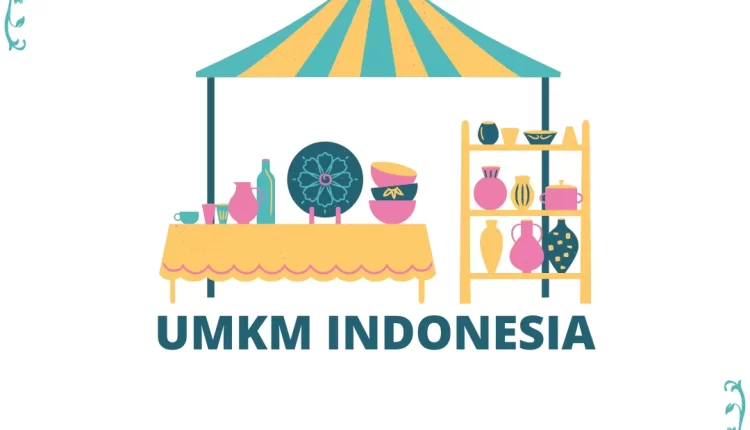MSMEs Pillar of National Economic Recovery and Growth
By: Sarifuddin Hidayat *)
Micro, Small, and Medium Enterprises (MSMEs) have long been the backbone of the Indonesian economy, demonstrating strong resilience in the face of various economic dynamics. Not only have they been able to survive, MSMEs have also managed to grow, adapt to new challenges, and play an important role in creating jobs and maintaining economic stability. MSMEs are a strategic sector because they absorb more than 97% of the workforce and contribute more than 60% to Indonesia’s Gross Domestic Product (GDP). Even during the COVID-19 pandemic, when many large business sectors were hit, MSMEs continued to move, becoming a pillar in the economic recovery process.
The pandemic requires MSMEs to transform, especially in terms of digitalization. Many MSMEs that previously relied on face-to-face transactions are now starting to integrate digital technology into their operations. Various e-commerce platforms, social media, and digital payment applications have opened up wider market access for MSMEs and become a momentum for MSMEs to expand their customer reach, both in local and international markets, without geographical barriers. This transformation is also supported by various government policies that facilitate MSMEs in adapting to change.
The government plays an important role in encouraging the growth and stability of MSMEs. Through the National Economic Recovery program, the government provides various forms of assistance, ranging from working capital grants to easier access to credit. This program provides a breath of fresh air for MSMEs facing liquidity problems during the pandemic. This step not only helps them survive but also encourages sustainable growth. In addition to direct assistance, the government launched the National Movement Proud of Indonesian Products, which aims to increase public interest in local products, thereby strengthening the MSME market.
Along with the development of technology and the increasing need for digitalization, the government realizes the importance of digital literacy for MSMEs. The National Digital Literacy Program “Indonesia Makin Cakap Digital” was initiated to improve the skills of MSMEs in using technology effectively. This government support aims to broaden the insights and capacities of MSMEs so that they are able to compete, not only at the national level but also in the international market. Collaboration between the government, educational institutions, technology companies, and international organizations is an important part of building an ecosystem that supports MSMEs to grow and innovate.
In today’s increasingly competitive era, the role of the younger generation is very vital in driving Indonesia’s economic progress. Deputy Chairperson of Commission VII of the Indonesian House of Representatives, Rahayu Saraswati D. Djojohadikusumo also highlighted that the involvement of young people in developing the MSME sector is very important. These MSMEs not only function as pillars of the economy, but also as a means to introduce Indonesia’s potential at the global level. The involvement of the younger generation who have a better understanding of technological developments is the key to increasing competitiveness and expanding the reach of Indonesian products in the international market.
Meanwhile, the Minister of SMEs, Maman Abdurrahman, sees the separation between the Ministry of Cooperatives and the Ministry of SMEs as an important step in strengthening the role of SMEs. This step is expected to allow the government to pay greater attention to the development of SMEs, in accordance with the direction of President Prabowo Subianto. Maman emphasized that this separation will make each ministry focus on its respective missions, namely cooperatives with a focus on developing cooperatives and SMEs focusing on developing the SME sector. The government also has a priority to help SMEs expand their markets, as well as increase access to capital that will support business sustainability.
Amidst increasingly tight competition, especially from imported products, the government is trying to increase the competitiveness of MSMEs through various policies. With government support, MSMEs are encouraged to produce quality products and have their own uniqueness, so that they can compete in local and international markets. In addition, the government continues to encourage the existence of MSMEs to be able to market products more widely through collaboration with various parties. This initiative is expected to help MSMEs gain a stronger position in the market, by presenting local products that are reliable and in demand by the community.
In the process of separating the ministries, the Minister of SMEs is optimistic that the separation mechanism can be completed in the near future. Although initially it is estimated that it will face internal dynamics related to employee placement and budget allocation, the government is committed to completing this process efficiently. The government ensures that the facilities and support that have been running for SMEs will not be disrupted. With a sharper focus, the Ministry of SMEs is expected to be more optimal in moving this sector towards a more advanced and competitive direction.
In the context of post-pandemic economic recovery, MSMEs have proven to be a sector that is not only able to survive but also become a pillar in rebuilding the economy. The government continues to strengthen its support through various policies, training programs, and access to digital infrastructure. The synergy between the government and MSMEs is expected to have a positive impact on Indonesia’s economic growth in the future. Collaboration between various parties, from MSME actors, the government, to the private sector, is a strong capital to ensure that MSMEs remain the main driver of economic recovery and growth. Thus, MSMEs will not only be a symbol of economic resilience but also an important pillar in building a more resilient and sustainable future for the Indonesian economy.
*) Analyst from Indo Berkarya Institute
